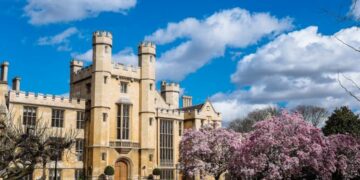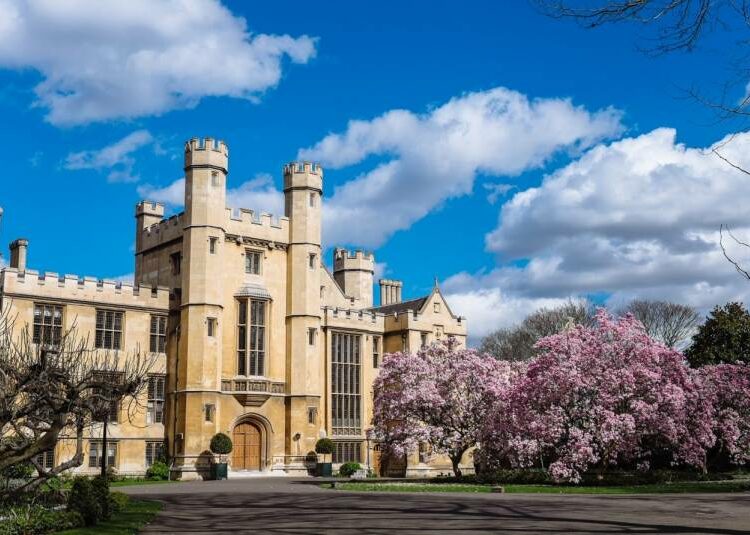We are two weeks away from Christmas according to the Gregorian calendar, and Great Britain, where King Charles III is the head of the Church of England, is facing a dramatic change in religious identity–for the first time, less than half of the inhabitants of England and Wales declared themselves Christians.
The results of the 2021 census have just been released, showing that the British society, which has had its own national church since the 16th century, is increasingly secularized and demographically diverse. In terms of religion, statistics show a new trend among the English and the Welsh: abandoning the Christian faith and turning to new cults, such as shamanism, paganism and Wiccanism.
The government’s Office for National Statistics announced that 46.2 percent of the population in England and Wales (27.5 million people) declared themselves as Christian, down from 59 percent (33.3 million people) in the 2011 census. The data for Scotland has not yet been fully processed.
Reacting to the results of the national declaration, Archbishop of York Stephen Cottrell says that behind us is the era in which people automatically declared themselves as Christians.
“It is no great surprise that the census shows that fewer people in this country identify as Christians than in the past. That fact is a challenge for us not only to believe that God will build his kingdom on Earth but to continue to preach Christ,” says Cottrell.
The Archbishop of York says people facing economic crisis, rising living costs and war in Europe still need spiritual guidance, adding: “We will be there for them to provide them with food and warmth.”
When asked to state their religion, the answer that they were not religious was one of the most common–as many as 37 percent (22.2 million people), which is an increase of 12 percent compared to the national survey ten years earlier. At the same time, the number of citizens who identify as Muslims increased from 4.9 to 6.5 percent. Also, there is an increase in those who profess Hinduism, whose number jumped from 1.5 to 1.7 percent. As a reminder, Prime Minister Rishi Sunak is a declared Hindu, and Mayor of London Sadiq Khan is a Muslim.
Linda Woodhead, a professor at King’s College London, told the BBC that the fact that such a large number of citizens declared themselves not religious does not mean that they have no beliefs: “Some are atheists, many are agnostics–they just say: ‘I don’t really know’–and some will still engage in some spiritual practice.”
As one of the problems in the decline in the number of Christian believers, Professor Woodhead sees the elderly population dying: “You have to pass on the faith to your children, and in Christianity that was not done.” It was done much more effectively in Islam and Hinduism.”
The census shows that shamanism is spreading faster than any other religion and the number of people who say they practice it has risen from 650 in 2011 to 8,000 in 2021 in England and Wales. The number of citizens who declare themselves as pagans is increasing and their number is now 74,000. As for the number of Wiccans (a neo-pagan spiritual practice of nature worship and witchcraft), their declared number reached 13,000 followers.
In recent years, across Europe, there has been a noticeable trend of a decrease in the number of citizens who declare themselves to be Christians in a religious sense. But a drastic decline in the number of believers who believe in the good news of Jesus Christ can have great consequences for the United Kingdom, where the Anglican Church is not only a part of tradition but is deeply woven into society and the state.
In England, as many as 4,632 schools are led by representatives of the Church of England, and 26 bishops have the right to vote in the House of Lords. Apart from Britain, Iran is the only other country in the world where religious officials are guaranteed seats in the legislature. Despite this, the Church of England can be worried because its spiritual flock is gradually falling away. According to the Telegraph, between 2010 and 2019, a total of 423 Anglican churches closed.
The new British monarch, who will be crowned by the Bishop of Canterbury, Justin Welby, on 6 May 2023, is aware of the changes related to the religious status of his subjects, which is why he recently said: “I am obliged to respect those who follow other spiritual paths, as well as those who want to live in accordance with secular ideals.”
Milenko Pešić, Politika daily




















Discussion about this post